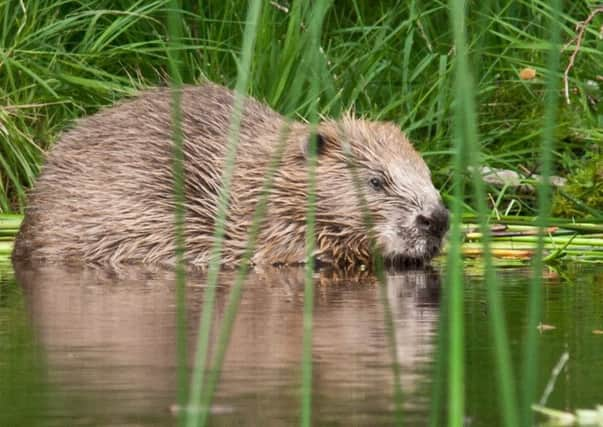New beavers to be set free in Argyll


Up to 28 more beavers will be set free around lochans in Knapdale Forest, in Argyll, where a small population has been living since a trial reintroduction project was launched in 2009.
The success of the five-year trial resulted in Scottish ministers granting the animals ‘native’ status, allowing them to remain in the wild and spread naturally.
Advertisement
Hide AdAdvertisement
Hide AdThis marked the first successful reintroduction of any wild mammal to the UK.
There are at least two unofficial beaver colonies living wild in Scotland – a large one around Loch Tay in Perthshire and a small one near Beauly in the Highlands – thought to have sprung up after captive animals were illegally released.
Scientists believe bringing in new beavers will give the small Knapdale population the best possible chance of thriving in the long-term and increase its genetic diversity.
The animals will be sourced from a variety of locations and will be screened to ensure they are healthy before being allowed to set foot on Scottish soil.
The reinforcement will be carried out by Scottish Beavers, a new partnership between the Scottish Wildlife Trust (SWT) and the Royal Zoological Society of Scotland (RZSS) created to continue the work of the Scottish Beaver Trial, under licence from Scottish Natural Heritage.
Conservationists says the move could safeguard the future for the newly reintroduced “native” species.
“Reinforcing the population at Knapdale is an exciting step forward for the future of beavers in Scotland,” said Susan Davies, director of conservation at the Scottish Wildlife Trust.
“Beavers are natural engineers with a unique ability to create new wetland habitats.
Advertisement
Hide AdAdvertisement
Hide Ad“They can benefit wildlife including otters, water voles, and dragonflies, and long-term research in Tayside has shown how their presence has revitalised previously drained land by doubling the range of plant species.
“The ponds and pools created behind beaver dams can also help improve water quality and regulate flooding, and their return to Scotland has great potential to boost our growing wildlife tourism industry.”
Sarah Robinson, head of conservation programmes and science for RZSS, added: “A deliberately small number of Norwegian beavers were introduced to Knapdale in 2009 to ensure we were able to monitor their progress at close quarters.
“These beavers were limited in both genetic range and overall number, and without urgent action the population is at risk of further decline.
“Now that it has been decided that they can stay, we have a duty to reinforce the population and ensure that they have a chance to make their homes in the wider area.”
